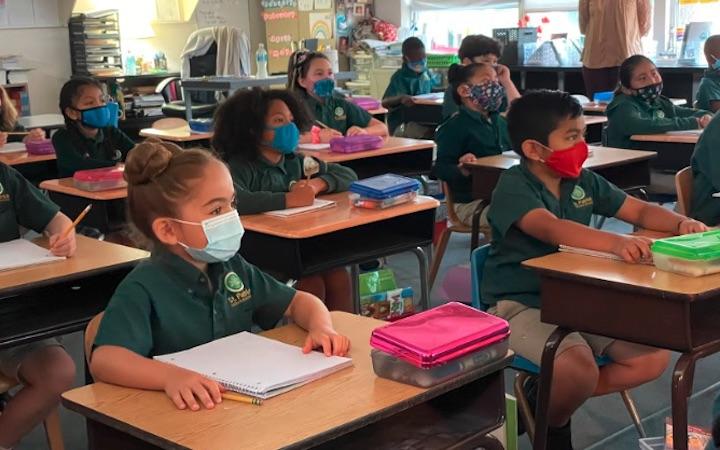In our last post, we explored how challenges in video games can inform how we design and present challenges in the classroom. Using Carol Dweck's model of response patterns to challenge, we noted two typical mindsets: "mastery-oriented" and "helpless." Video games are designed to promote iteration, stepwise progress, and little social cost of failure. Students are therefore more likely to develop a mastery-oriented mindset towards them, but the same cannot be said of all classrooms.
What more can we do to foster that motivational, mastery-oriented mindset? First, let's look into some of the root causes of student response to challenge. Dweck writes in Self-Theories (2000), "helpless and mastery-oriented students have different goals in achievement situations, and that these goals help create the helpless and mastery-oriented responses" (p. 15). In your classroom, what are your students' goals? To learn more? To get to recess? To show how much they know? To avoid getting called on? Before you can reshape mindsets or leverage what motivates your students, you must know what your students' goals are.
Dweck found two types of goals that formed how students responded to academic challenge. Both are completely normal, and both can be motivating forces. Everyone sets each type of goal throughout the day, often at the same time. The first type is a "performance goal," an ability-measuring goal. Dweck describes these goals to be "about winning positive judgments of your competence and avoiding negative ones" (p. 15) The other type is a "learning goal," in which the aim is "increasing your competence. It reflects a desire to learn new skills, master new tasks, or understand new things—a desire to get smarter" (p. 15).
The type of goal students set depends on how the challenge is presented. In one study, Dweck randomly grouped students into two test conditions: one that was prompted with a performance goal of evaluating their ability on a task, and one that was prompted with the learning goal of figuring out valuable information. While both groups started out with similar results, those who were prompted with the performance goal began to show a "helpless" reaction when they started to feel challenged. Those who were prompted with the learning goal displayed more mastery-oriented responses and continued working through the challenge. These trends held true regardless of ability.
While both types of goals can motivate, an overemphasis of performance goals can lead students to avoid opportunities to learn things they are not already good at and promote the helpless pattern of response to challenge (p. 16). By contrast, "with a learning goal, students don't have to feel that they're already good at something in order to hang in and keep trying. After all, their goal is to learn, not to prove they're smart" (p. 17).
Blended-learning pedagogy presents students with learning goals to promote mastery-oriented mindsets. The goal is not that every student competes to be "the best," but that each strives to be better than they were yesterday. The best software is both adaptive (responding to student input) and iterative (offering multiple opportunities and formats for showing mastery). This allows students to understand learning as a cycle of challenge and growth, and to set achievable learning goals one step at a time. Students are given challenges at their just-right level, a learning opportunity tailored just for them. Many educational programs are "gamified," where the motivating factor is to get your character just a little bit further. Students and teachers track progress over time through the software; presenting evidence of improvement over time does much to reverse a helpless reaction pattern.
What more can we do to foster mastery-oriented reactions to challenge? Please let us know what you have done in your classroom!
Want future blogs delivered right to your inbox?
 Alliance for Catholic Education
Alliance for Catholic Education
